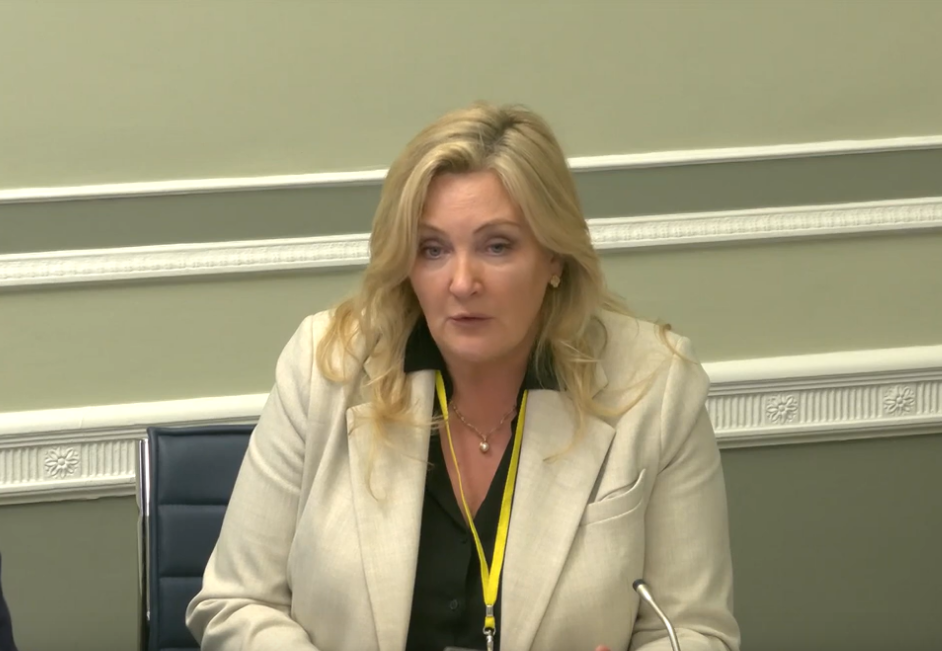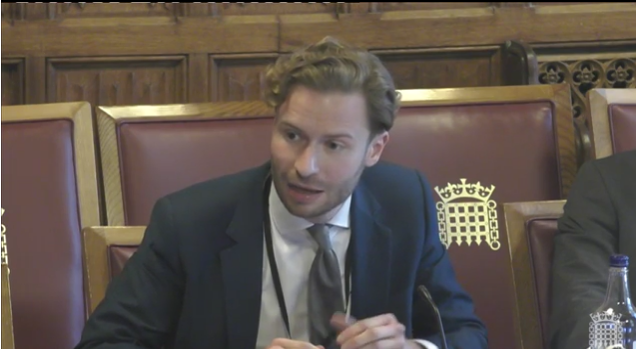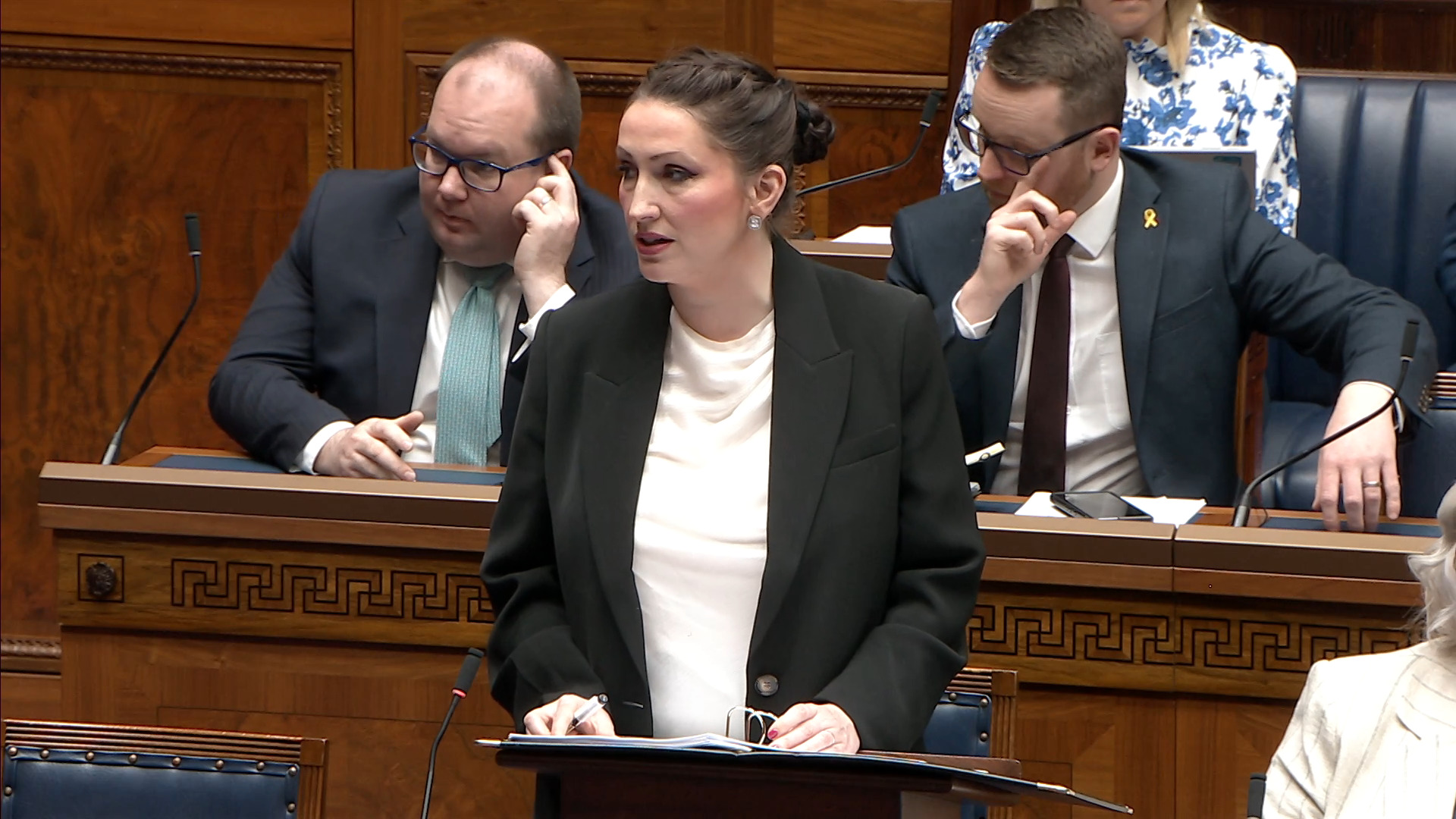Brexit & Beyond newsletter
13 May 2024
 Welcome to the 13 May 2024 Brexit & Beyond newsletter
Welcome to the 13 May 2024 Brexit & Beyond newsletter
Last week at the Assembly, the Committee for Finance heard evidence on replacement EU funding. The Democratic Scrutiny Committee considered two published EU regulations which may apply in NI. The Lords Sub-Committee on the Windsor Framework heard evidence about Northern Ireland’s engagement with the Framework. The deputy First Minister made a statement on the first meeting of the East-West Council.
The EU-UK Joint Committee is meeting on Thursday 16 May. It will consider EU acts to be adopted i.e. added to the Windsor Framework. Before the UK can agree with the EU in the Joint Committee that a new EU law should apply in NI, the Northern Ireland Assembly must indicate cross-community support for the new law to be added to the Framework by passing an ‘applicability motion’. The Assembly has considered applicability motions on an EU regulation on the protection of geographical indications for craft and industrial products (which was not agreed with cross-community support) and an EU regulation on organic pet food (which was agreed with cross-community support).
The Trade and Cooperation Agreement Partnership Council will also meet on 16 May. Read more about the governance structures for the Withdrawal Agreement and Trade and Cooperation Agreement on our website.
- Post-Brexit funding
- Democratic Scrutiny Committee
- Lords Windsor Framework Sub-Committee
- Plenary business
- Other news
Post-Brexit funding
On 8 May, officials from the Department of Finance gave evidence to the Committee for Finance on replacement EU funding. The Committee heard that the Department tries to work as constructively as possible with UK Government departments. However, officials stated, “information sharing has been largely one-sided”. They say there is a lack of understanding within the Department for Levelling Up, Housing, and Communities regarding how Northern Ireland Government works “which has led to, what [they] would say are, avoidable issues in terms of how the SPF [Shared Prosperity Fund] and the other funds on the levelling up agenda have operated.”
The Minister for Finance has provided evidence to the Commons Public Administration and Constitutional Affairs Committee as part of its inquiry on devolution capability in Whitehall. She states, “The replacement of locally administered EU funding with Whitehall funding has failed to deliver a complete replacement, either in quantum, scope of intervention or duration. The lack of understanding of devolved and local government structures here has been a significant contributing factor to the slow delivery and to the limited impact this funding has had on the ground.”
Officials said that while engagement has improved over the last year, a lack of information means NI departments cannot engage fully in the delivery of the SPF. The most pressing issue for the Department is to get clarity on what happens when SPF ends next year and they have been raising post-2025 funding “continuously at working level since early last year”. The issue has also been raised by the Minister at the Finance Interministerial Committee, and is a concern for Scottish and Welsh colleagues. “Everyone's aware of the challenges that this poses”, the official stated.
The gap between what NI received under EU funding and replacement funding is £30 million on average each year. The European Social Fund would have supported the voluntary and community sector while the European Regional Development Fund (ERDF) - designed to strengthen economic, social and territorial cohesion in the European Union – supported small businesses and community groups. Officials said that the generally accepted principle is that these sorts of funds “should be delivered ideally as closely as possible to the citizen.” In England that might mean local authorities and they take the same approach here, but the local authorities “do not have the ability, the tools, the levers to deliver that…We're trying to then retrofit it and try to find solutions to a policy that's been designed without Northern Ireland in mind,” they stated.
PEACE funding
The Committee also heard about the implementation of the PEACE PLUS programme from Gina McIntyre, Chief Executive of the Special EU Programmes Body. She outlined the successes of the previous Peace IV program, which had a total value of approximately €270 million and had 95 projects. The new PEACE PLUS programme has a value of €1.14 billion and has six themes (read more here). In the Withdrawal Agreement, the EU and the UK committed to continue the PEACE funding programme for Northern Ireland, a programme to “support peace and reconciliation and to promote economic and social progress in Northern Ireland and the Border Region of Ireland”.

Gina McIntyre, Chief Executive of the Special EU Programmes Body, giving evidence to the Committee for Finance
Democratic Scrutiny Committee
On 9 May, the Democratic Scrutiny Committee received legal advice and heard evidence from officials from the Department for Agriculture, Environment and Rural Affairs (DAERA) on EU Regulation 2024/1157 on shipments of waste. This policy area is reserved and DAERA states, “it falls to Defra [the UK Department for Environment, Food and Rural Affairs] to carry out any specific assessment of impact on Northern Ireland”. The regulation aims to make the transport of waste more environmentally friendly and reduce waste crime, by establishing procedures and controls for shipments of waste.
DAERA officials said their current understanding is it that it does not appear that the regulation would have “a significant impact specific to everyday life of communities in Northern Ireland in a way that is liable to persist”. As set out in the Windsor Framework (Democratic Scrutiny) Regulations 2024, the Committee must have regard to this when considering whether to hold an inquiry.
The waste sector will be impacted by this replacement act and officials said there is “a significant volume” of waste exported from Northern Ireland to which the regulation would apply. In 2023, waste exports from Northern Ireland outside of the UK totalled almost 1 million tons. Officials understand that the UK Government also intends to introduce tougher rules on plastic exports: provision for this was included in the 2021 Environment Act and a consultation is anticipated.
The Committee decided to conduct an inquiry into this EU act and wants to hear from business representatives and civil society who may be affected. The online survey closes on 20 May.
As part of an ongoing inquiry, the Committee also heard evidence from DAERA officials on EU Regulation 2024/1143 on the geographical indications for wine, spirit drinks and agricultural products. Next week, the Committee will consider responses from the public survey on this regulation.
In response to a written question from Steve Aiken, who sits on the Committee, the First Minister and deputy First Minister explain the internal process of the Executive for monitoring EU laws which may apply in Northern Ireland.
Lords Windsor Framework Sub-Committee
On 8 May, the House of Lords Sub-Committee on the Windsor Framework heard evidence on ‘Strengthening Northern Ireland’s voice in the context of the Windsor Framework’. The Committee is conducting a new inquiry on this theme. Professor David Phinnemore of Queen’s University Belfast called the arrangements for NI “novel” compared to arrangements for other third countries with the EU. Associate Fellow at the Centre for European Reform Anton Spisak said the Windsor Framework improves representation, but there are few opportunities for NI voices to be heard in the EU’s pre-legislative process, and this “falls short of other precedents [in agreements] that the EU negotiated in the past”.

Anton Spisak speaking to the Lords Windsor Framework Sub-Committee
Spisak noted the numerous bodies involved in the governance of the Windsor Framework and the complexity and difficulty in navigating those. He questioned whether anyone in this setup is looking at the issues “in the round”. Phinnemore welcomed the UK Government’s commitments on internal policy making (see the Safeguarding the Union Command Paper), saying there was a gap for NI voices to feed into UK policy making. He said the new UK Government-NI Executive working group could be very important. Spisak highlighted the importance of greater clarity from the UK Government on areas of regulation where it expects to align with EU rules.
The Stormont Brake and Democratic Scrutiny Committee
Phinnemore’s view is that “the potential for [the Stormont Brake’s] use was possibly overstated”. He referred to his work analysing the EU acts to which the Stormont Brake could be applied. Professor of Politics and International Studies at the Open University Simon Usherwood said the Stormont Brake is designed to be an “exceptional measure”, and pre-legislative engagement “should obviate the need to use the Brake”. Martin Howe KC said his prognosis is “very poor” regarding the effectiveness of the Brake and applicability motions, based on the experience on similar arrangements for the EEA. He noted the potential of EU countermeasures.
Professor of Law and Democracy at Newcastle Law School Colin Murray referred to comments from Deputy Secretary for Inter-government and International Relations in The Executive Office Tom Reid to the Democratic Scrutiny Committee about capacity and capability issues. He said the systems will only work effectively if NI has officials who are across all aspects of EU law. Murray highlighted the two-month time limit for pulling the Brake and that this doesn’t take account of recess periods, saying, “a lot of this can be made to work as there will be advance notice” but that currently hasn’t been happening, as the Assembly hasn’t been sitting.
Engagement structures
Howe told the Committee that while engagement is important, he tends to view this as “palliative” for the “deeply unsatisfactory overall structure” of EU law applying in NI. Dr Sylvia de Mars from Newcastle Law School said the Windsor Framework has made “significant improvements on paper” but agreed with other witnesses that at this point it is difficult to say how effective they are. Murray pointed out the lack of transparency in the work of some of the committees involved in the governance of the Framework – read more on the Brexit & Beyond website.
De Mars commented on the European Commission’s commitments on engagement (February 2023), saying they don’t specify what engagement is meant to look like, and she is concerned about the lack of transparency to-date. She stated, “The EU needs to be significantly clearer on how it is actually engaging with Northern Ireland stakeholders as opposed to just talking at them.” She added that the UK “needs to be doing a significantly better job of creating a pipeline of information that makes scrutiny at the Northern Ireland level possible and workable.”
Howe said when you look at how EU legislates and how this applies in NI, it is difficult to realistically see how the shape and form of legislation is going to be affected by what is said in NI, adding that it is hard enough for some EU members states to get it changed. However, he said there could be scope for some variation in its application.
Plenary business
East-West Council
On 7 May, the deputy First Minister Emma Little-Pengelly made a statement on the inaugural meeting of the East-West Council, which was established as part of the UK Government’s 'Safeguarding the Union' Command Paper of January 2024. The meeting took place in London on 26 March. The deputy First Minister said the Council is “a unique new forum, bringing together key representatives from government, civil society and business to identify opportunities for deepening connections in areas such as trade, transport, education, sport and culture.” She said it is intended to complement existing intergovernmental relations across the islands.

Deputy First Minister Emma Little-Pengelly
Little-Pengelly told MLAs that the Council's work will be driven by “targeted ‘missions’, outlined in the Command Paper, that are designed to tackle some of Northern Ireland's most challenging issues” such as economic inactivity, east-west institutional connectivity, trade flows and international investment. The first meeting focused on the Council’s strategic direction and governance, and attendees discussed opportunities that InterTrade UK (also envisaged in the Command Paper) could bring “to promote trade and unlock barriers within the United Kingdom.”
Leader of the Opposition Matthew O’Toole asked why there were no attendees from devolved administrations in Scotland and Wales at the Council. The deputy First Minister said, “The forum was an initiative that came out of the 'Safeguarding the Union' Command Paper, which is an agreement that came from negotiation between Northern Ireland and the United Kingdom Government…that is why the inaugural meeting focused particularly on engagement between Northern Ireland and the United Kingdom Government. It was made clear, though, at the meeting and, indeed, in the press afterwards that other jurisdictions would be invited to participate.”
Little-Pengelly said the UK Government “must take action” and that InterTrade UK would have an important role “to ensure that businesses in Great Britain are fully aware of what they can do in internal UK trade and do not unnecessarily prevent goods from going to Northern Ireland.” She added, “InterTrade UK will both promote awareness among businesses in the private sector and enable us to hold the feet of the UK Government to the fire on fulfilling the commitments that they have given to the people of Northern Ireland to ensure free-flowing and unfettered internal UK trade.”
Funding NI’s post-Brexit arrangements
During questions to the Finance Minister, regarding the funding of the Windsor Framework, Minister Caoimhe Archibald stated, “Departments make bids to us and then to Treasury, so Treasury pays for the arrangement. Up until now, the arrangement is that Treasury funds the elements of the Windsor Framework. We anticipate that that will continue and that we will see that in the June monitoring round.”
Other news
- Amazon is launching a new dedicated store in Ireland next year. BBC NI Economics and Business Editor John Campbell says this is “probably the most significant post-Brexit decoupling of a UK and Ireland retail business.”
- A joint statement from the EU-UK Specialised Committee on Financial Provisions meeting of 24 April 2024 has been published.
- Professor Catherine Barnard explains the European Commission’s recent UK-EU youth mobility recommendation.
- The UK in a Changing Europe has published its latest UK-EU relations tracker for Q1 2024.



